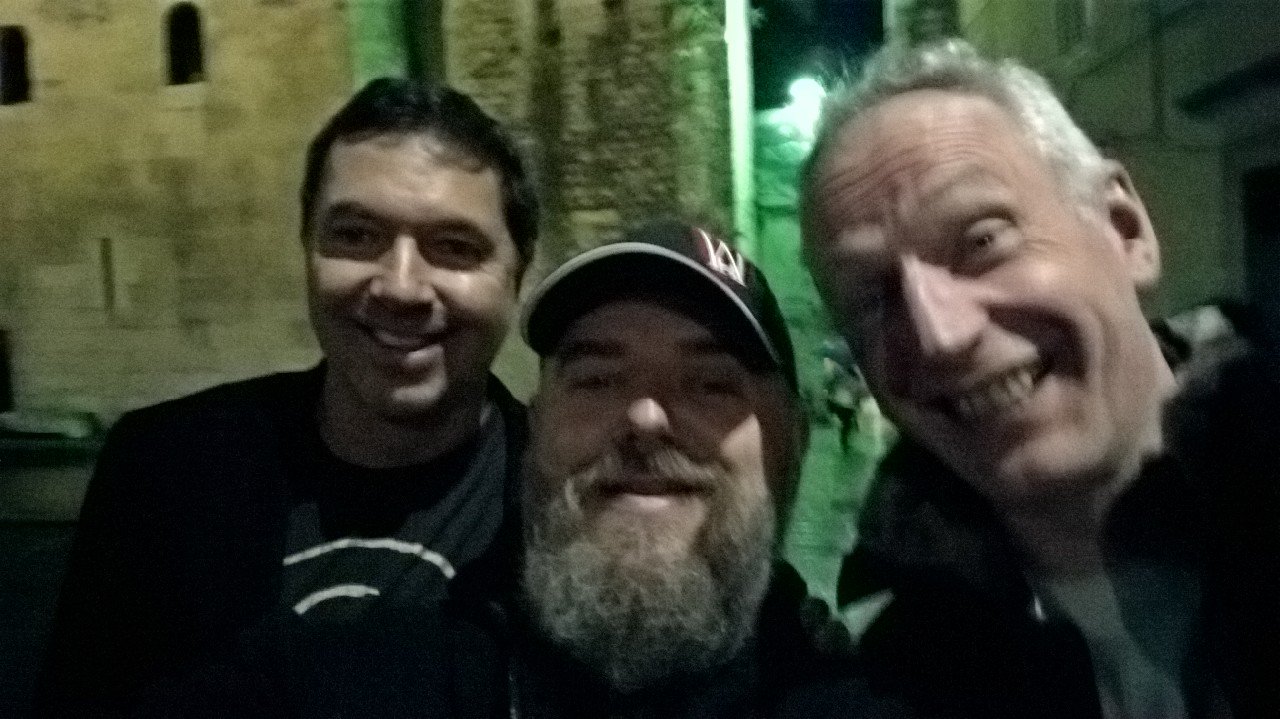Dan (currently at the helm of
Warhorse Studios) talked about the tool that they’d built to manage the insane amount of situational writing in their upcoming “real world” historic RPG. After expressing some annoyance with the show
Vikings for sacrificing historical accuracy “just to be cooler” he’d mentioned that one of the top issues in RPGs for him was that the quests all more or less boiled down to what he described as the “Chicken & Cock” problem, which he described as follows (and I paraphrase):
Chicken needs a key to Open Door -> Chicken is told that the Cock has the key -> Chicken goes to the Cock for the key, the Cock tells it that it needs to bring the Cock some grain in exchange, and that the Cow has the grain -> Chicken goes to the Cow, Cow sends it to the Dog -> ad infinitum.
In
Kingdom Come: Deliverance (link goes to the beta trailer), they decided against this approach in favor of non-linear quests. Dan used the example of a subquest in their game where the player character is asked by an NPC to poison a rival farmer’s cow. Should the NPC1 poison the cow, the NPC2 who owned the cow, if he doesn’t know it was
you who did it might hire you to kill NPC1, or maybe you can get NPC1 and NPC2 to make up, or find a completely different solution.
Another key note about their approach to writing were SOULS and ROLES, where a ROLE (eg., an NPC saying good morning) would be connected to the SOUL (ie., a character) who would say it in a way unique to them, and them only, and would depend on other factors such as weather, if everyone in the village is dead (for example), the surroundings, relation to the player character and other NPCs, and so forth.
Another interesting feature that they’re adding into the quests for realism is the concept of time: if you were asked to meet an NPC tomorrow noon, but are late, the NPC might have been killed off, resulting in a twist in the quest arc; if you are early, perhaps you’ll have time to prepare for the meeting better, and so forth.
They are also adding a feature where, should you kill off a number of quest-giver NPCs, the cities and villages would later become populated with NPCs that have the same quests, but would look differently (as long as you haven’t started their quests). This is to avoid breaking the game should you decide to just murder everyone in your path.
Too keep this crazily-branching story under control, Dan said that the team had written a custom tool they’d called Skald (a Scandinavian word for “bard”). It took them a couple of years to polish the tool to the point where they were happy with it — Dan showed it to the audience, and boy, does it look good. It keeps track of story branches, quests, characters, translations, and everything else you might want to see in a video game writing tool. Interestingly enough, the dialogs aren’t made in form of dialog trees but, rather, of “topics” due to the extremely dynamic structure of the game’s narrative. It keeps track of NPCs shouts, social standing, barks, reactions, occupations, etc, etc, etc.
According to Dan, so far they have over 500,000 words in the script, out of which 300,000 words is pure dialog.
I, for one, am excited to greeting our new medieval RPG overlords when the game is finally done. “Game development is anarchy,” Mr. Vávra had said, and that was a notion that quite a few other speakers had seconded later during their talks. But I think that it’s the kind of anarchy that shapes rocks into castles if enough anarchists are enthusiastic enough.

























